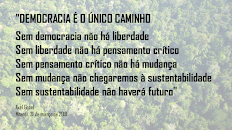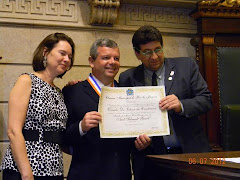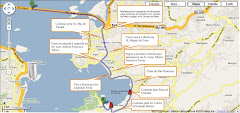Brazil’s forest policy could undermine its climate goals
In RIO DE JANEIRO, Brazil — Brazil, caretaker of the world’s largest rain forest, is about to enact broad new regulations that opponents say could loosen restrictions on Amazon deforestation and increase the country’s greenhouse gas emissions.
The move comes after two years of often roiling debates and dozens of hearings across the country over how to update a 1965 law that was designed to control slash-and-burn agriculture. Backers say the proposed Forest Code bill, which is expected to be signed into law early next year, would protect the Amazon while easing the regulatory burden on small farmers.
Brazil, a leader on climate change and host of next June’s U.N. Earth Summit in Rio de Janeiro, is charting a climate strategy shaped by domestic politics and economic concerns that sometimes appears at odds with its international environmental rhetoric. Such domestic pressures — clear also in increasingly influential developing countries such as China and India — have created uncertainty over how the world will curb its carbon output by the end of the decade, even as negotiators gear up to forge a new global warming pact by 2015.
“It sends a mixed message because Brazil has positioned itself as a country that’s committed itself to saving the forest cover to the benefit of the world,” said Christian Poirier, Brazil program director for Amazon Watch. “The new forest code flouts all that.”
Proponents say it is an improvement over the 1965 law, which requires landholders in the Amazon to have a forest cover over 80 percent of their land. That law has been strengthened over time, and its critics say its myriad rules are hard to understand and routinely ignored.
“The current forest code is not working at all,” said Marcos Jank, head of the sugar cane trade group UNICA. “It has not been respected. It’s extremely confusing because the forest code has changed many times in our history.”
Under a Brazilian Senate proposal approved earlier this month, farmers would still have to set aside the same amount of their land for forest. But various loopholes, environmentalists warn, would permit farmers in some states to reduce the amount of land covered by trees. Farmers also would be able to reforest as much as 50 percent of illegally denuded areas with exotic species, rather than native trees, and the overhaul would require farmers to restore only about half of the 212,000 square miles — an area the size of France — they would have been required to restore under the current law.
The code also would do away with restrictions on the clearing of trees from riverbanks and hillsides, by measuring buffer regions based on river flows during the dry season rather than the rainy season, while shielding farmers in the Amazon with up to 1,087 acres of land from fines and other legal penalties for having deforested before July 2008.
Supporters of the bill say it would make it easier for farmers to comply while creating a series of incentives that, in time, would curb deforestation.
“You will take that farmer and bring him into the law,” said Andre Nassar, director of the Institute for International Trade Negotiations, a Sao Paulo-based group that is sponsored by the agricultural industry. “And then that farmer probably will not continue to carry out that illegal deforestation.”
Fonte: The Washington Post
























Nenhum comentário:
Postar um comentário
Contribua. Deixe aqui a sua crítica, comentário ou complementação ao conteúdo da mensagem postada no Blog do Axel Grael. Obrigado.